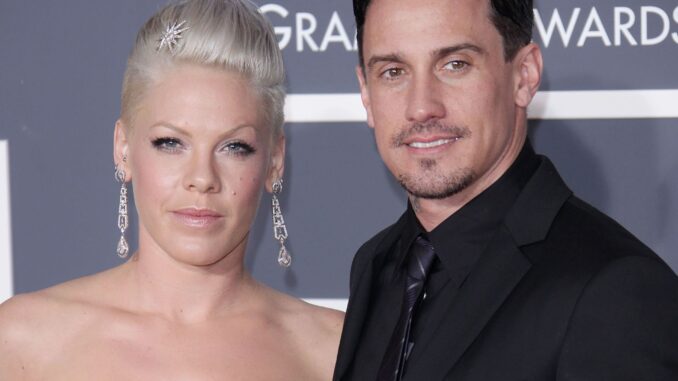
The shocking assassination of conservative activist Charlie Kirk has sent ripples across the United States, creating a wave of mourning, outrage, and heated discussion. Kirk, who founded Turning Point USA and became a prominent voice in right-wing politics, was killed on September 10, 2025, while speaking at Utah Valley University. He was struck by gunfire during the event, later dying from his injuries at a nearby hospital. His death immediately drew attention nationwide, with many political leaders condemning the violence as a threat to democratic principles and free expression. Memorials soon followed, including a massive service in Arizona that drew close to 90,000 attendees, showing the scale of grief and support among his followers.
While millions were in mourning, the response from pop star P!nk (Alecia Moore) took a dramatically different tone. In a message posted to her social media accounts, she bluntly declared, “I won’t fake sympathy.” This unapologetic stance sparked a storm of controversy and immediately divided her fan base and the public. For P!nk, the issue was not whether Kirk’s assassination was tragic—it clearly was—but whether she should feel compelled to publicly express sorrow she did not truly feel. She argued that people should not be pressured into performative grief, especially when the person in question had been such a polarizing figure during his lifetime. Her statement also urged people to challenge those who assumed universal mourning, suggesting that when someone brings up Kirk’s death, one should ask them to explain what he stood for, making them articulate his legacy rather than assume shared reverence.
The backlash was swift. Critics accused the singer of insensitivity and disrespect, arguing that her remarks trivialized a violent death and disrespected Kirk’s grieving family and supporters. Some fans expressed disappointment and even threatened to boycott her music. On the other side, however, many praised her for her candor, applauding her refusal to conform to what she viewed as a culture of forced sympathy. These supporters argued that honesty matters more than optics and that people should never be pressured into mourning someone they did not admire or support in life.
P!nk’s comments also touched on the broader issue of how public mourning is handled in the United States. She pointed out what she saw as inconsistencies in official displays of grief, such as lowering flags for certain figures while ignoring others. Her critique raised the question of whether mourning has become politicized, shaped by who is seen as worthy of national sympathy and who is not. This perspective resonated with some who feel that grief has been co-opted by politics and media, often stripped of sincerity.
The larger conversation sparked by her statement reveals a cultural tension that goes beyond Kirk’s death. In the social media era, public figures are often expected to respond instantly to tragedies, offering condolences or reflections whether or not they have genuine feelings about the person involved. This can create a cycle of hollow statements and performative grief that does little to honor the truth. P!nk’s refusal to “fake sympathy” was, in her view, an act of defiance against this cycle, a commitment to authenticity over appearance.
Charlie Kirk’s assassination remains a shocking and tragic event that has left the nation grappling with the realities of political violence. His supporters view him as a victim of hatred and as someone who died standing for his beliefs. His critics continue to hold conflicting emotions, acknowledging the horror of his death while remembering the controversy of his life. P!nk’s bold declaration added another layer to this moment in history, challenging people to examine how they approach grief and whether sincerity should matter more than tradition or social pressure.
Her stance may be polarizing, but it reflects an uncomfortable truth: not every death will inspire universal mourning, and not every public statement will carry genuine emotion. By choosing not to participate in what she considered a performance, P!nk has ignited a debate that reaches beyond one man’s death and into the heart of how society processes tragedy, authenticity, and the politics of emotion.